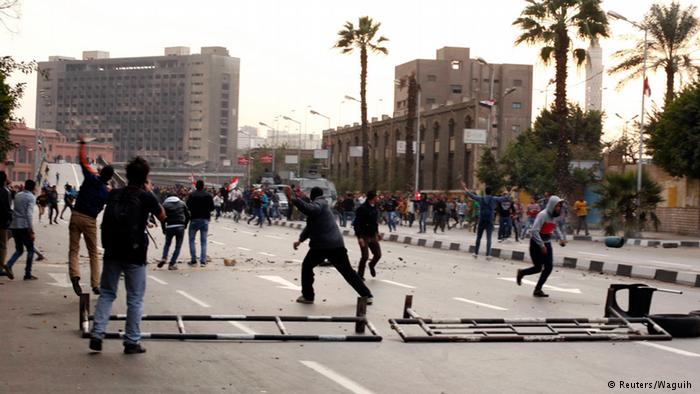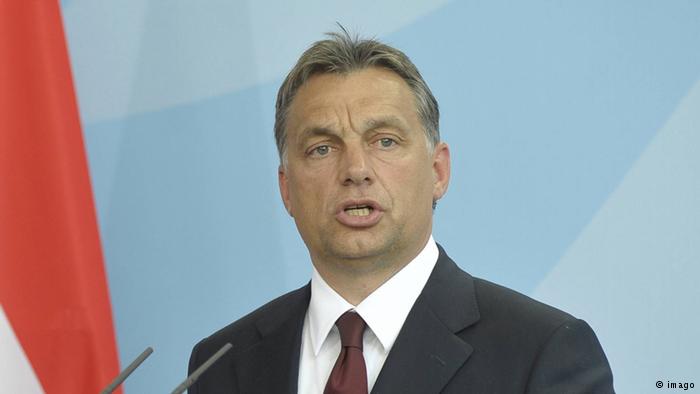Democracy
Study: democracy in the world is in danger
The transformation index of the Bertelsmann Foundation paints a bleak picture: more and more countries, citizens will limit their rights and freedom or cropped. And not just in autocratic States.

Anti-government Demonstration in Cairo (January 2015)
The judgment of the Bertelsmann Foundation, is hard: In one-fifth of the countries examined, the quality of democracy has decreased significantly, repression is on the increase in many places, political participation is always less.
Since 2006, the Foundation takes every two years, the development of 129 break countries around the world under the magnifying glass – in a political and economic point of view. This is as the study of rule-of-law principles to social policy.
More and more “hard-autocratic” States
The study is divided in your latest issue 74, democratically-governed countries and 55 are authoritarian. Especially in autocracies repression have increased since the last study in 2014. Only 15 autocracies would protect its citizens, at least rudimentary, the study said. Around three-quarters of the autocratically run governments restricted the rights of freedom so far that your System was described as “hard-autocratic”. Including approximately five years after the “Arab spring” – and many North African countries. But not only that: Especially troubling setbacks in freedom of press and speech would have made Egypt and Thailand.
On the subject of “Free elections” denounces the study, among other things, the behavior of the governments in Burkina Faso and Libya. The right to freedom of Assembly has suffered, among other things, in Libya, Egypt and Thailand. Not infrequently, the freedom in these countries, rights under the guise of fighting terrorism, is limited.
Also, many democracies suffer
However, not only in autocracies, citizens suffer more and more rights of freedom. Many democratic States are affected, including those in Central and Eastern Europe, which had been estimated in previous studies as significantly more stable. Probably the most striking example of one of these “illiberal democracies,” is Hungary, where according to the study, particularly the freedom of the press is under the government of Orban is severely limited. Also in Macedonia and, albeit significantly weaker – in Slovenia, there are “tendencies to rule”. The recent reforms of the national-conservative government in Poland are not taken into account in the study, the Foundation refers the fact that many observers fear that democratic gains could be eroded in the near future.

“Illiberal Democracy” In Hungary, Prime Minister Viktor Orban
The Turkey is even referred to as a “defective democracy”. The increasing pressure from the Erdogan government to the judiciary was evidence, also, violence, and prosecution against journalists and restrictions on freedom of Assembly in the Wake of Anti-Terror laws. The system of government in Turkey, according to the study, moving from a parliamentary to a presidential.
In addition, Turkey is one of the a total of 42 countries studied, the Index attests to a strong religious character. In addition to numerous States from the Arab region, African countries such as Nigeria and Senegal, and Asian States such as Indonesia and, what may surprise some observers, Russia. Here is the Russian-Orthodox faith instrumentalize representatives increasingly by the government. The Church would be in Russia in the eyes of many traditional Russian values – to the West in accrual-liberal ideas.
Social ills as a reason
The reason for the crises and conflicts in so many transition countries, the study looks in almost all cases, in a misguided social policy. Poverty, inequality and economic hopelessness were responsible for the tensions, which are discharged in the protests. Also, the economic stability in many countries – including more than half of the G20 States, such as, for example, in Brazil and Russia. “Urgently needed social action” under these conditions is hardly possible, as the Bertelsmann Foundation.
At the end, the question is: What to do against the apparently global democratic deficit? The recipe of the study is: participation and dialogue, reforms and fight corruption. At the end of a consensus of “governments need to and Ruled on where the journey goes”. Anything else would lead to more populism and even greater radicalization of. The coming transformation report for 2018 would then be potentially fatal as this year’s edition.
